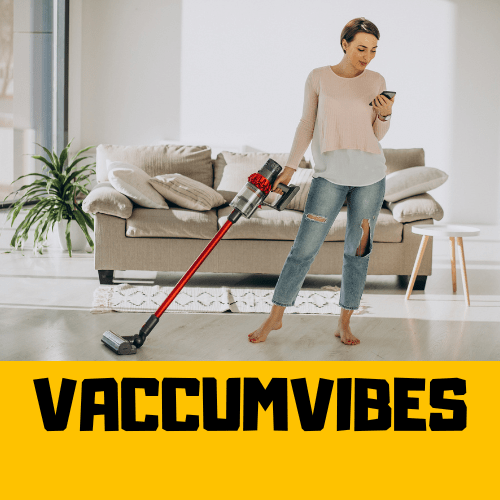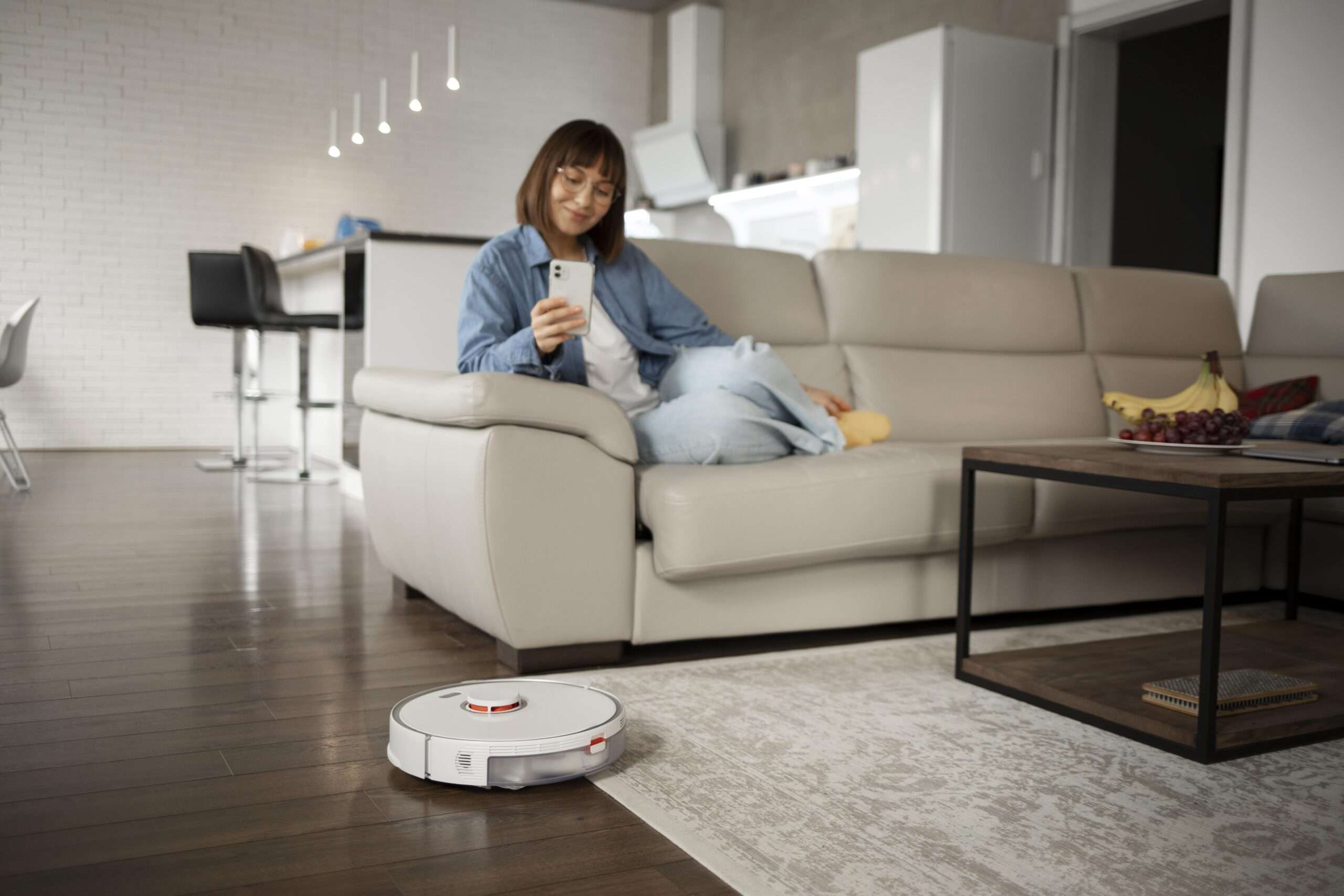
The integration of robot vacuums into our regular household cleaning regime is becoming increasingly prevalent, making users wonder whether robot vacuums pose security issues. This automated cleaning tool has been winning the hearts of cleaning enthusiasts and modern homeowners for whom budget is not a concern, and they are opting for it to taste convenience and efficiency at the same time by delegating a plethora of tedious tasks like vacuuming to a machine.
However, due to connectivity features, robot vacuums have been said to bring security vulnerabilities as hackers can break the cybersecurity, steal personal data, or even control other connected devices. Symantec, a leading cybersecurity company, has reported that IoT attacks witnessed a whopping 600% increase in FY 2017, focusing on the flourishing threat landscape. Stick to this article to learn whether robot vacuums bring security issues supported by relevant statistics and how to thwart cyberattacks.
Table of Contents
What is a robot vacuum cleaner? How does a robot vacuum cleaner work?
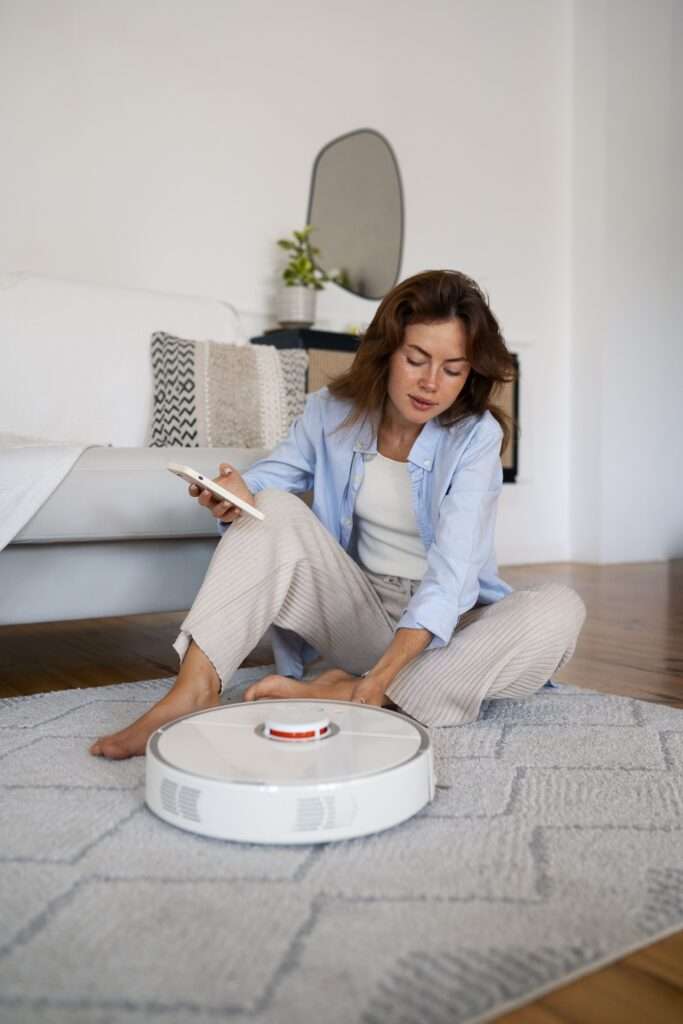
To add to the convenience of modern homeowners who are also busy professionals, robot vacuum cleaners, such as Robovac or Roomba, are or can be equipped with advanced sensors, programming, smartphone apps, virtual assistants like Google Assistant or Amazon Alexa, and cameras to effortlessly navigate through the surfaces of your living room or commercial space and map the cleaning area.
These compact automated domestic and commercial cleaning tools move around your living room or commercial space, detecting and removing pet hair, embedded dust, grime, dirt, and debris from diverse floor surfaces such as wooden, carpeted, tiled, and laminated. Since every robot vacuum cleaner is equipped with rechargeable batteries, they can operate wirelessly for prolonged periods of time without worrying about a power socket.
Do robot vacuums collect data? What kind of sensitive data can a robot vacuum gather?
Hackers can utilize metadata to collect data and footage to cause harm to users. Robot vacuum cleaners mostly include data collection as part of their functional routine, which can include information about your cleaning schedules, home layout, and even Wi-Fi network details for easier and quicker connectivity. The vacuum-producing company sometimes uses this data to equip new features in their product lines, improve product performance, or provide better customer support.
Privacy concerns arise when these data sets are shared with third parties, used for targeted advertising, or when hackers manage to gain unauthorized access to your home’s network.
What is the Roomba controversy?
The MIT Technology Review in 2022 reported how pictures of a young woman tester and a minor using the washroom went viral on social media platforms. Even if one of the leading vacuum manufacturing companies, iRobot, claimed to have acquired participants’ consent to collect this type of private footage from houses, the participants did not agree with this claim, and they felt duped and embarrassed as private photos of them surfaced on Facebook.
What are the Data Protection Laws for robot vacuum cleaners?
Robot vacuum cleaners fall under the general data protection regulations that take into consideration all IoT devices and smart home technology. These laws, including the California Consumer Privacy Act (CCPA) in the United States and the General Data Protection Regulation (GDPR) in the European Union, require manufacturers of IoT devices to adopt strategies to protect user data to the best extent possible by obtaining informed consent for data usage, collection, and sharing, and most prominently offering users control over their sensitive data.
Do Robot Vacuums Bring Security Issues-Internet of Things (IoT) Vulnerabilities
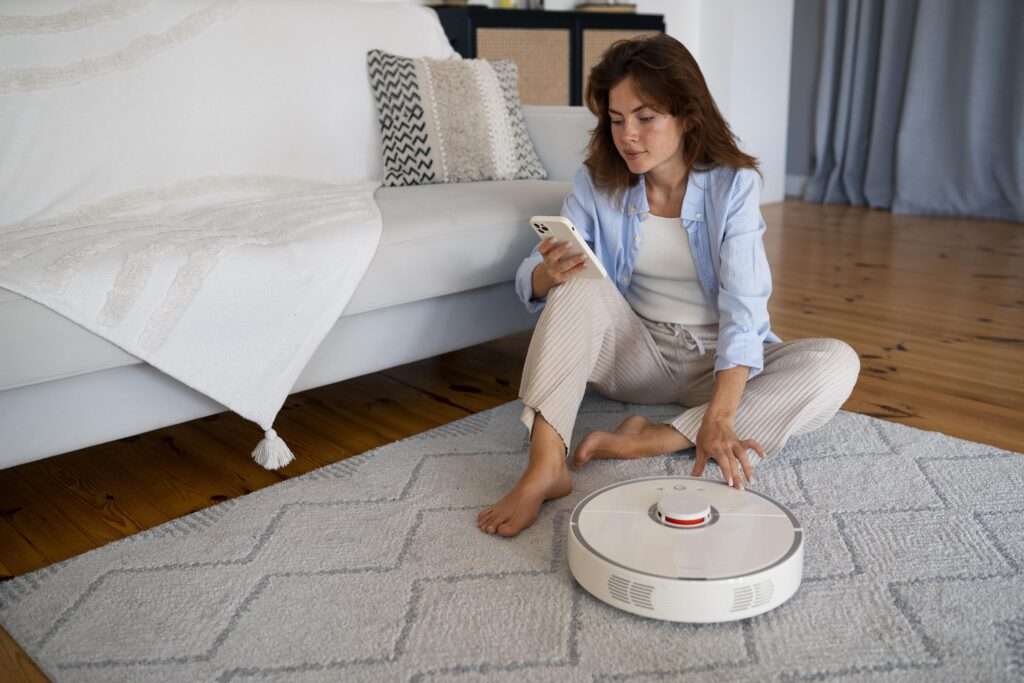
Just as other smart devices perform, robot vacuums form an integral part of the Internet of Things (IoT) ecosystem, and thus, this interconnected network of devices creates a network in your home that bears potential vulnerabilities. Very few of the robot vacuum cleaner models don’t require an Internet connection, and thus they don’t invite privacy and security concerns as well to add to the worry of users.
However, the majority of the robot vacuum cleaner models function through the mechanism of floor mapping of homes and also use an advanced camera to take shots and live videos for home monitoring, thus requiring an active Internet connection. As robot vacuums connect to Wi-Fi networks for remote control and scheduling via mobile apps, they become potential targets for cyberattacks. These attacks can range from unauthorized access to the device to more sophisticated exploits that compromise user privacy.
Do Robot Vacuums Bring Security Issues-Data Privacy concerns?
To add to the convenience of modern homeowners who are also busy professionals, most of the robot vacuum cleaner models are or can be equipped with advanced sensors, programming, smartphone apps, virtual assistants like Google Assistant or Amazon Alexa, and cameras to effortlessly navigate through the surfaces of your living room or commercial space and map the cleaning area.
These smart features, although increase the device’s efficiency and reduce the need for manual intervention, also bring with them significant privacy concerns and it has been reported by Consumer Reports that 71% of users who have incorporated smart devices in their home worry about the potential misuse of their data.
Robot vacuums significantly invite security risks as they function through connectivity features and link themselves with your home’s Wi-Fi networks to enable you to control it remotely and share data. Hackers eagerly wait for such opportunities to exploit vulnerabilities in the vacuum cleaner’s software to gain unauthorized access to your home’s network.
Once they gain access, they are ready to make cyber attacks, control other connected devices of your home, and even steal your sensitive data. All the robot vacuums that are put in for domestic cleaning purposes contain floor plans of your home and specific cleaning patterns, and hackers are experts in taking advantage of this sensitive data illegally.
In addition to this, there have been consistent ongoing controversies and debates on whether leading companies like iRobot, which is famous for engineering Roomba, should take users’ consent explicitly for collecting their sensitive data and footage and whether the data collected should be anonymized.
Lack of Standardized Security Measures
Although there are diverse signs of progress in the field of smart technologies, there is still a lack of standardized security measures that smart devices, including robot vacuums, are in dire need of, which contributes to the overall data vulnerability. HP Fortify found in a recent study that 70% of commonly used IoT devices, like robot vacuum cleaners, contain data vulnerabilities as there are few consistent security standards.
Robot vacuum manufacturers are rather interested in delivering features and functionality instead of prioritizing robust security measures and this negligence is exposing users to potential cyber threats, as the robot vacuum fails to safeguard itself against attacks.
Do Robot Vacuums Bring Security Issues—Potential for Remote Exploitation?
Since robot vacuum cleaners are equipping themselves with more technological advances at a frequent interval of every six months, and are turning into more sophisticated, and efficient automated cleaning solutions, advanced features such as remote monitoring, floor mapping, and control via mobile apps increase the chances of remote exploitation. Check Point Software, in one of their research studies, tracked vulnerabilities in leading and trending robot vacuum cleaner models, increasing the chances of gaining unauthorized access to the device, leading to potential misuse coupled with privacy breaches.
The chances of remote exploitation of various average-priced robot vacuum cleaner models highlight the dire necessity of vacuum manufacturers focusing on secure software development practices coupled with regularly updating firmware to track and eliminate identified vulnerabilities.
Do Robot Vacuums Bring Security Issues-Emerging Trends in Cybersecurity Threats?
The landscape of cybersecurity threats is dynamic and is meeting new challenges for connected devices every few months and robot vacuums are not safe from these attacks. McAfee has reported that ransomware attacks on IoT devices have gained momentum by 73% in FY 2020. Although, in this regard, the primary targets have been laptops and smartphones, the booming trend has pointed out that IoT devices, including various low and medium-priced robot vacuum cleaner models, are turning into appealing targets for cybercriminals.
How to prevent cybersecurity risks from robot vacuums
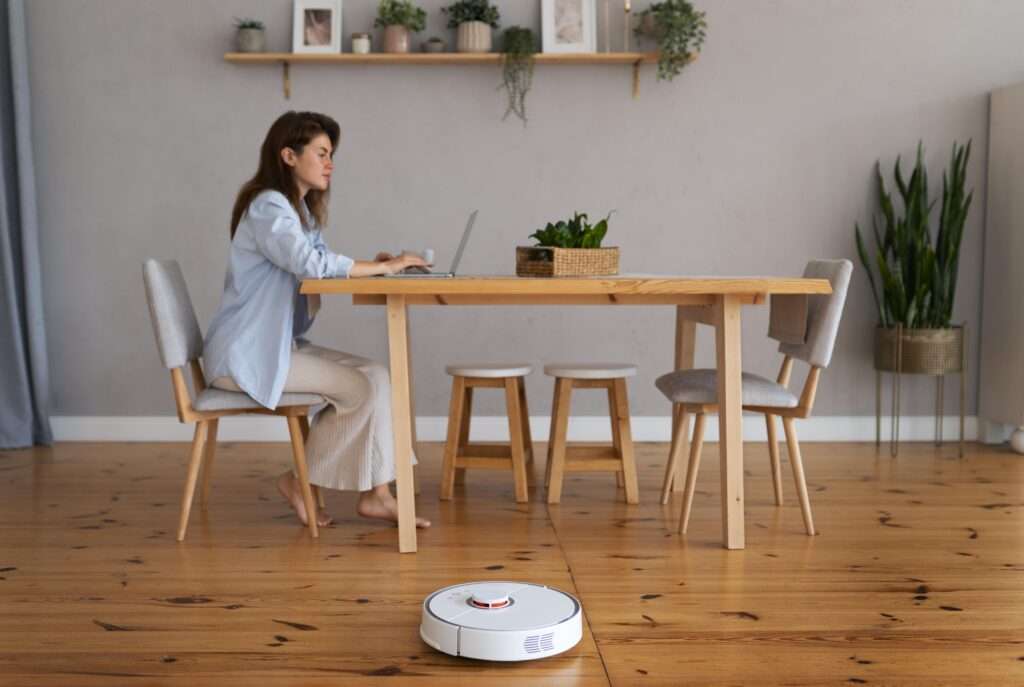
To come up with ineffective resistance, vacuum manufacturing companies need to stay proactive and vigilant in thwarting emerging cybersecurity threats so that the security of their products is not compromised in any way. It is advised that budget-conscious customers should not go for robot vacuums and those whose budget doesn’t bother them should always choose robot vacuum models from reputable and leading manufacturers with a research unit dedicated to cybersecurity.
In addition to this, robot vacuum manufacturers need to employ robust security measures mandatorily and frequently upgrade firmware, along with arranging collaboration sessions with cybersecurity experts to mitigate potential cybersecurity risks. In addition to this, you can go for factory resetting your robovac, ask the manufacturing brand to permanently delete your sensitive data, thoroughly check the privacy policy of the manufacturing brand and whether they abide by the globally recognized consumer IoT security standard, and lastly, go for a strong Wi-Fi password with letters, symbols, and numbers.
Conclusion
Even if the launch of robot vacuums has ingrained undeniable convenience and effectiveness in automating daily household chores for busy professionals, users can’t ignore the potential security issues associated with these interconnected robotic devices, as robot vacuums bring security issues. These security and privacy issues shed light on the intersection of consumer rights, privacy, and technology in the era of smart home devices.
The ever-increasing cases of data privacy concerns, IoT vulnerabilities, remote exploitation possibilities, the absence of standardized security measures, and emerging trends in cybersecurity threats collectively focus on the dire necessity for a proactive approach to address these diverse sets of cybersecurity challenges.
FAQs
Can a robot vacuum get hacked?
Yes, a robot vacuum cleaner can get hacked if it uses the WiFi connection of your home or functions by the mechanism of IoT connecting with other devices. By taking undue advantage of security flaws to gain unauthorized access to the robot vacuum cleaner’s controls, they can eavesdrop on your conversations, remotely control the device, or gather sensitive data, and footage without your knowledge.
Can robot vacuums spy?
Robot vacuums have the potential to spy on users, and if hacked, they can be used for surveillance, using their microphones, built-in cameras, or mapping features to collect sensitive data and footage about a household.
Which robot vacuum has good privacy?
Companies like iRobot are popular for focusing on privacy features such as transparent data policies, strong encryption, and user control over data sharing. Other leading brands like Ecovacs, Dyson, Shark, and Neato Robotics also offer privacy-focused features in their robot vacuum cleaners and regularly update the software on their devices to address security concerns.

For the past five years, I’ve been engaged as an SEO content writer, specializing in crafting engaging blog posts. My focus lies in meticulously exploring and evaluating household cleaning appliances, particularly those integrated with cutting-edge and emerging technologies.
